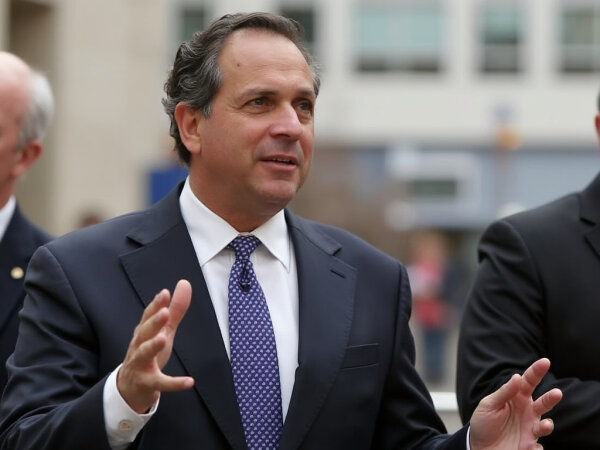Ken Paxton Sues Dallas Over Decriminalization Ballot Measure

11/29/2024
Texas Attorney General Ken Paxton announced Thursday that he is suing the City of Dallas over Proposition R, a ballot measure approved by 67% of voters that decriminalizes marijuana possession within city limits. The measure prohibits the Dallas Police Department from arresting or citing individuals for marijuana possession and bans the use of marijuana odor as probable cause for search or seizure.
Paxton argues that the measure violates state law, which criminalizes marijuana possession and distribution. His lawsuit contends that the Texas Constitution prevents municipalities from enacting ordinances that conflict with laws passed by the state legislature. "Cities cannot pick and choose which State laws they follow," Paxton said in a statement. "The City of Dallas has no authority to override Texas drug laws or prohibit the police from enforcing them."
Paxton criticized Proposition R as "a backdoor attempt to violate the Texas Constitution" and warned other Texas cities against adopting similar measures. He vowed to sue any municipality that tries to constrain police enforcement of state drug laws.
The lawsuit follows a directive from interim Dallas Police Chief Michael Igo earlier this year instructing officers not to enforce marijuana laws against individuals found with less than four ounces of the substance. Supporters of the measure, including the progressive nonprofit Ground Game Texas, argue that it promotes justice and fiscal responsibility by reducing arrests for minor marijuana offenses, addressing racial disparities in policing, and saving public resources.
"It's unfortunate but not surprising that Attorney General Ken Paxton has apparently chosen to waste everyone's time and money by filing yet another baseless lawsuit against marijuana decriminalization," said Catina Voellinger, executive director of Ground Game Texas. She pointed out that similar lawsuits filed by Paxton in Travis and Hays counties were dismissed by judges. "The Dallas Freedom Act was overwhelmingly approved by voters — this is democracy in action."
The legal battle reflects a broader conflict in Texas over marijuana policy. While state law remains firm in criminalizing marijuana, local efforts to decriminalize possession have gained momentum, creating a patchwork of enforcement practices across the state. Paxton's lawsuit aims to prevent Dallas and other cities from challenging the state's prohibition on marijuana, setting the stage for a contentious legal showdown.
Reference
Paxton argues that the measure violates state law, which criminalizes marijuana possession and distribution. His lawsuit contends that the Texas Constitution prevents municipalities from enacting ordinances that conflict with laws passed by the state legislature. "Cities cannot pick and choose which State laws they follow," Paxton said in a statement. "The City of Dallas has no authority to override Texas drug laws or prohibit the police from enforcing them."
Paxton criticized Proposition R as "a backdoor attempt to violate the Texas Constitution" and warned other Texas cities against adopting similar measures. He vowed to sue any municipality that tries to constrain police enforcement of state drug laws.
The lawsuit follows a directive from interim Dallas Police Chief Michael Igo earlier this year instructing officers not to enforce marijuana laws against individuals found with less than four ounces of the substance. Supporters of the measure, including the progressive nonprofit Ground Game Texas, argue that it promotes justice and fiscal responsibility by reducing arrests for minor marijuana offenses, addressing racial disparities in policing, and saving public resources.
"It's unfortunate but not surprising that Attorney General Ken Paxton has apparently chosen to waste everyone's time and money by filing yet another baseless lawsuit against marijuana decriminalization," said Catina Voellinger, executive director of Ground Game Texas. She pointed out that similar lawsuits filed by Paxton in Travis and Hays counties were dismissed by judges. "The Dallas Freedom Act was overwhelmingly approved by voters — this is democracy in action."
The legal battle reflects a broader conflict in Texas over marijuana policy. While state law remains firm in criminalizing marijuana, local efforts to decriminalize possession have gained momentum, creating a patchwork of enforcement practices across the state. Paxton's lawsuit aims to prevent Dallas and other cities from challenging the state's prohibition on marijuana, setting the stage for a contentious legal showdown.
Reference







